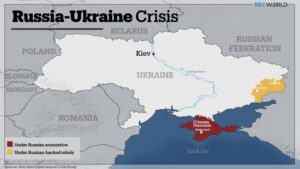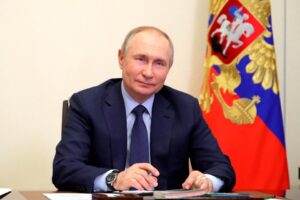House Speaker Nancy Pelosi has become the first official of her stature to visit Taiwan in nearly 30 years.
The Biden Administration did not formally approve her Tuesday trip, but the President did not openly discourage her from going either.
But then, the People’s Republic of China (P.R.C), which claims ownership of the island, responded with a series of military drills.
Analysts say the purpose of Pelosi’s trip was nothing short of a provocative act.
“The island is being aggressively transformed into an offensive launch platform for war, even as US strategists seek to provoke China into military action,” Sara Flounders, a political activist, said in her report.
Globally, the visit sends a message to other nations that the US can and will challenge any nation, no matter how strong they may pretend to be, Flounders said.
The US has supported Taiwan both militarily and economically since the communist takeover of China in the late 1940s, however, Washington has not recognised Taipei as an independent state under the ‘One-China’ policy.
The People’s Republic of China signed a vow of non-interference in its internal affairs and respect for its sovereignty and territorial integrity as the primary condition for normalising relations with the United States in 1972.
But China claims that the US has repeatedly broken this promise by “grossly interfering” in “Hong Kong, Tibet, Xinjiang, and Taiwan”.
In the midst of this, analysts say Taiwan is serving as a pawn in the domestic political game between the US and the People’s Republic of China. And gains little from this display of support.
Shelley Rigger, a professor of political science at Davidson College, told The New Yorker that initially, Pelosi’s goal was almost certainly to do a little cheerleading for Taiwan, but once it became this test of wills between Pelosi and Xi Jinping whether or not it was good for Taiwan fell away.
“It does not benefit Taiwan, probably does harm to Taiwan’s security, and it has insured that US-China relations, which were already pretty bad, are worse than they were before. We may have a much more difficult time recovering than we thought three weeks ago,” Rigger said.
‘Playing with fire’
Taiwan’s status is a clear-cut issue for Beijing, and Xi Jinping’s strategy for national renewal includes Taiwan’s eventual reintegration into the mainland.
China had warned the US it is performing a “highly dangerous trick” over Taiwan and “those playing with fire will get burned”.
Zhao Lijian, a spokesperson for the Chinese Foreign Ministry, had already issued a warning of “forceful responses” should Pelosi land on Taiwanese soil.
But the trip happened regardless.
Pelosi’s visit has also caused further turbulence into the US-China relationship, arguably the most important bilateral relationship in the world.
“China’s responses will be systematic and not limited to a small scale, given the severity of Pelosi’s actions and the damage to political trust from Sino-US relations,” Yang Mingjie, head of the Chinese Academy of Social Sciences Institute of Taiwan Studies, said.
He further stated that China’s response could include “military options and comprehensive countermeasures from the economy to diplomacy”.
If China or the US overreacts and starts something like what is happening to Ukraine, trapped in the greater struggle between the US-led West and Russia, the repercussions for the tiny island nation, officially known as the Republic of China, might be terrible, analysts say.



















Be First to Comment